
Culture
13:12, 23-Nov-2018
Is China's gender imbalance improving?
Updated
12:24, 26-Nov-2018
Anosi Wang
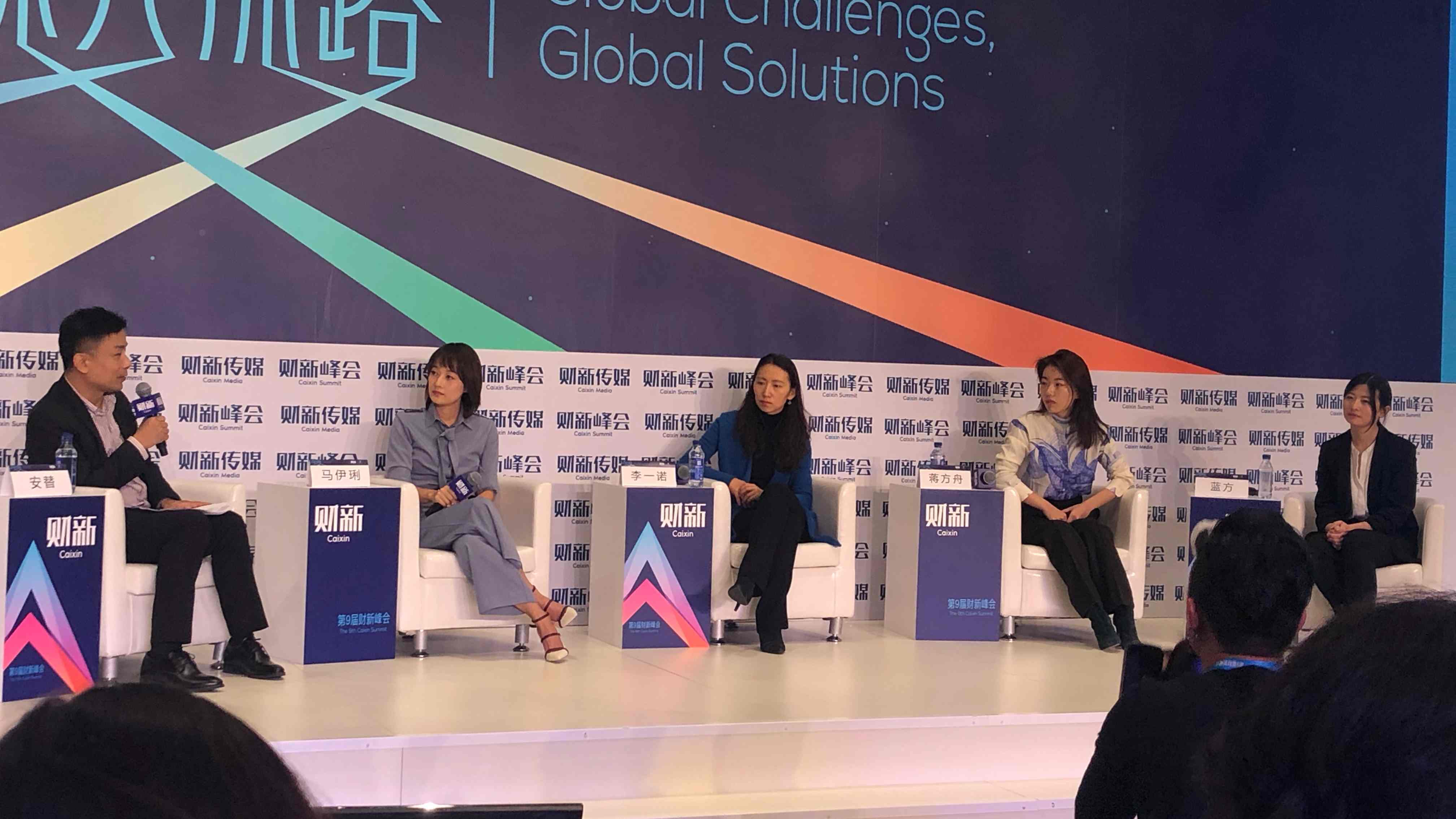
What exactly is gender equality, and how can we achieve it? Four young women from different industries discussed the topic at the Young Women Economic Leaders Roundtable talk at the 9th Caixin Summit in Beijing on November 20.
Are Chinese women shallow?

Actress Ma Yili takes about "sexist" remarks during the 9th Caixin Summit in Beijing, China, November 20, 2018. /VCG photo
Actress Ma Yili takes about "sexist" remarks during the 9th Caixin Summit in Beijing, China, November 20, 2018. /VCG photo
Ma Yili, a leading actress in China, responded to the recent remarks from a Chinese businessman that money is what Chinese women want in a mate and having a good conscience doesn't matter.
Ma said she disagrees with the remark and thought that he had no respect for himself.
"Women who I know are not taking a man's worth as a factor in choosing their husbands at all. They prefer to be with partners who are kind, disciplined and responsible," Ma explained.
Ma mentioned that women are world leaders in many areas and hopes that she can use her platform as an actress to speak for women who typically don't get heard.
Related Stories
What is stopping gender equality?
Li Yinuo, the director of Bill & Melinda Gates Foundation's China office, said gender inequality has exploded ever since women began to enter the workforce after graduating from higher education, despite these issues not being apparent during school years.
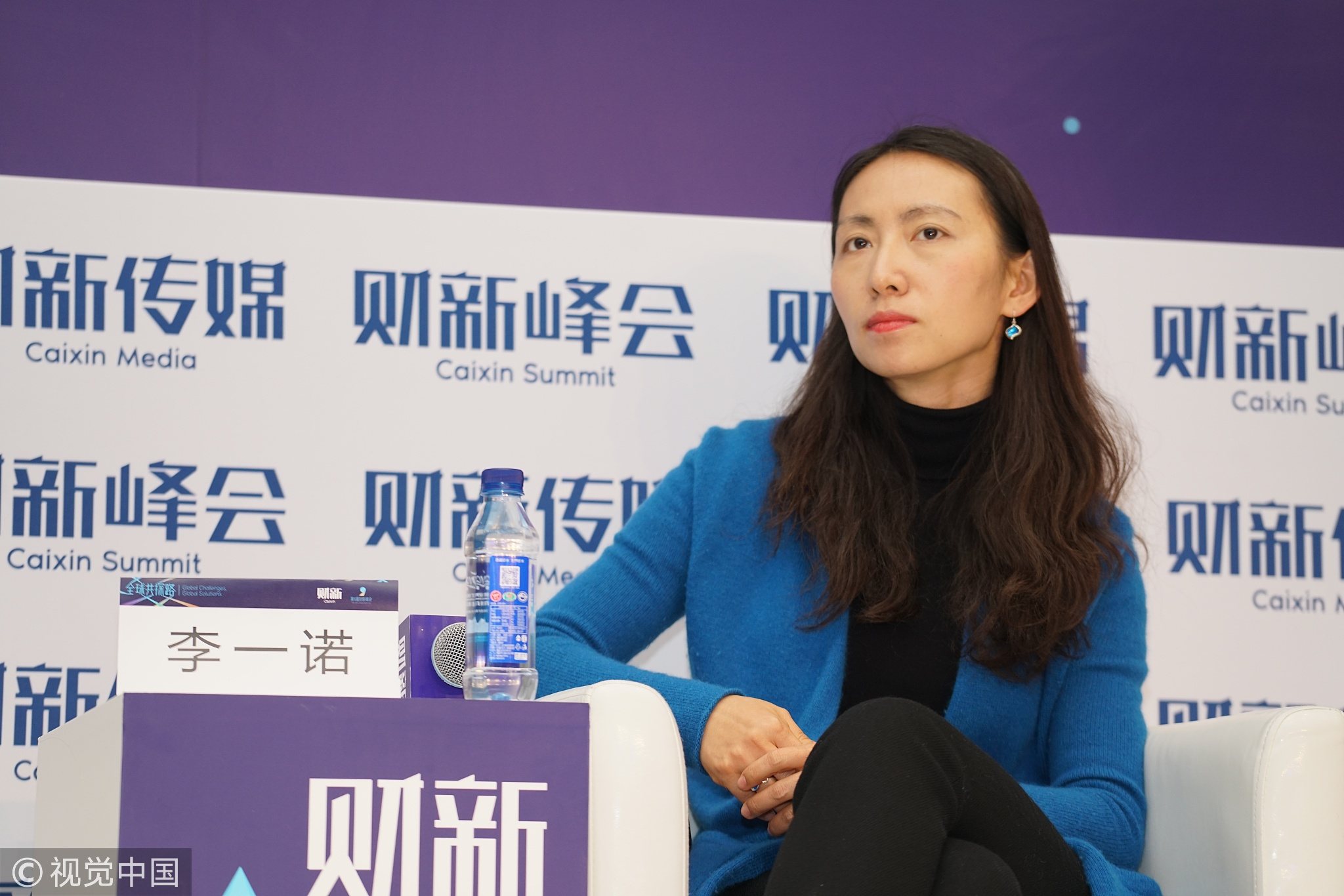
Li Yinuo, the director of Bill & Melinda Gates Foundation, China office, is at Young Women Economic Leaders Roundtable talk at the 9th Caixin Summit in Beijing, China, November 20, 2018. /VCG Photo
Li Yinuo, the director of Bill & Melinda Gates Foundation, China office, is at Young Women Economic Leaders Roundtable talk at the 9th Caixin Summit in Beijing, China, November 20, 2018. /VCG Photo
"In 1995, there were no women in the Top 500 CEO list. Income inequality can also be found everywhere, even in women who live in the urban middle classes," Li said.
According to a report from McKinsey & Company, from 2015 to 2018, gender equality was seen in the lack of progress in the career pipeline for many women.
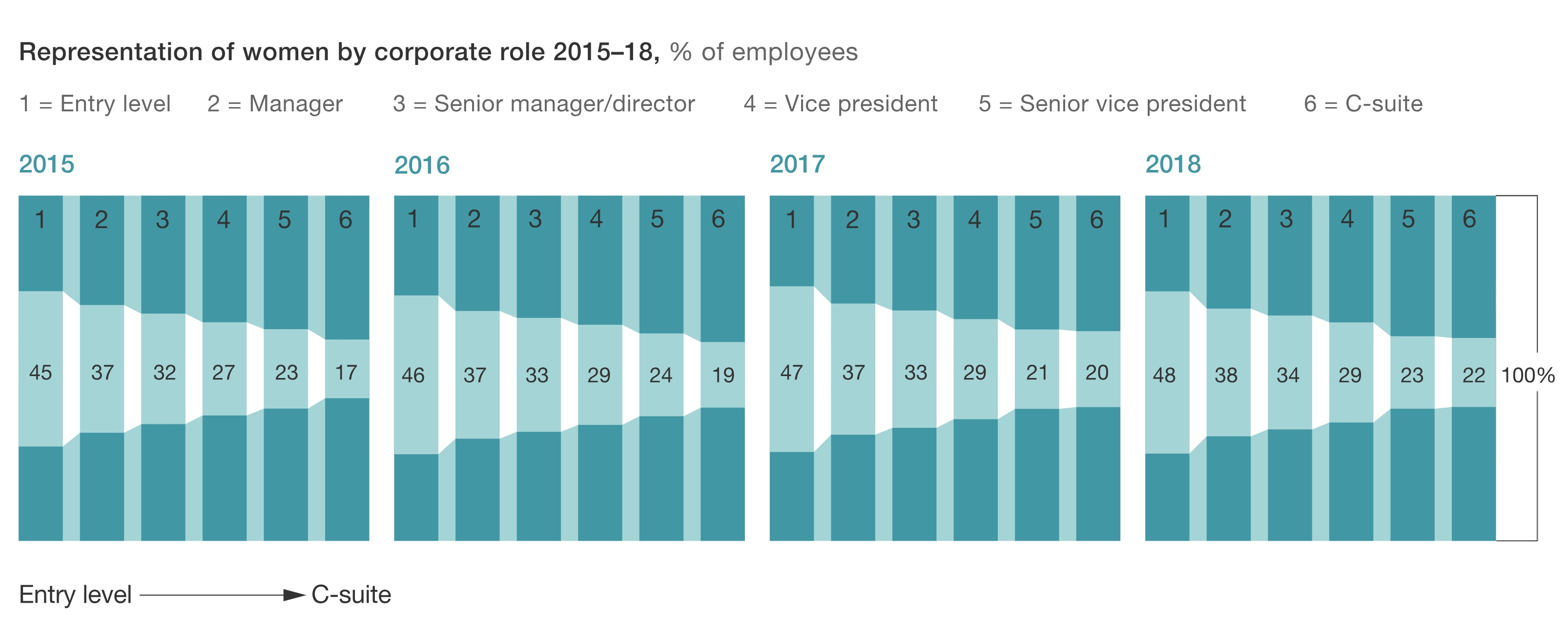
Source: 2018 leanln.Org and McKinsey Women in the Workplace study
Source: 2018 leanln.Org and McKinsey Women in the Workplace study
According to the Women in the Workplace 2018 report, around half of all employees think that their company sees gender diversity as a priority and is doing what it can to make progress. Roughly 20 percent of employees say that their company's commitment to gender diversity feels like lip service.
Fewer companies are making a strong business case for gender diversity, while 76 percent of companies have articulated a business case, and only 13 percent have taken the critical next step of calculating the positive impact on their business.
Where inequality starts in China
"In China, 80 percent of grassroots teachers are women, but there are no female headmasters in grassroots schools, especially in the countryside," Lan Fang, the co-Founder of C Plan in China, said. She said that the young generations still have gender stereotypes because of unjust social standards. "The social gauge says that "women is sensitive but unable to talk," so that's why there are no headmasters in grassroots schools," Lan added.
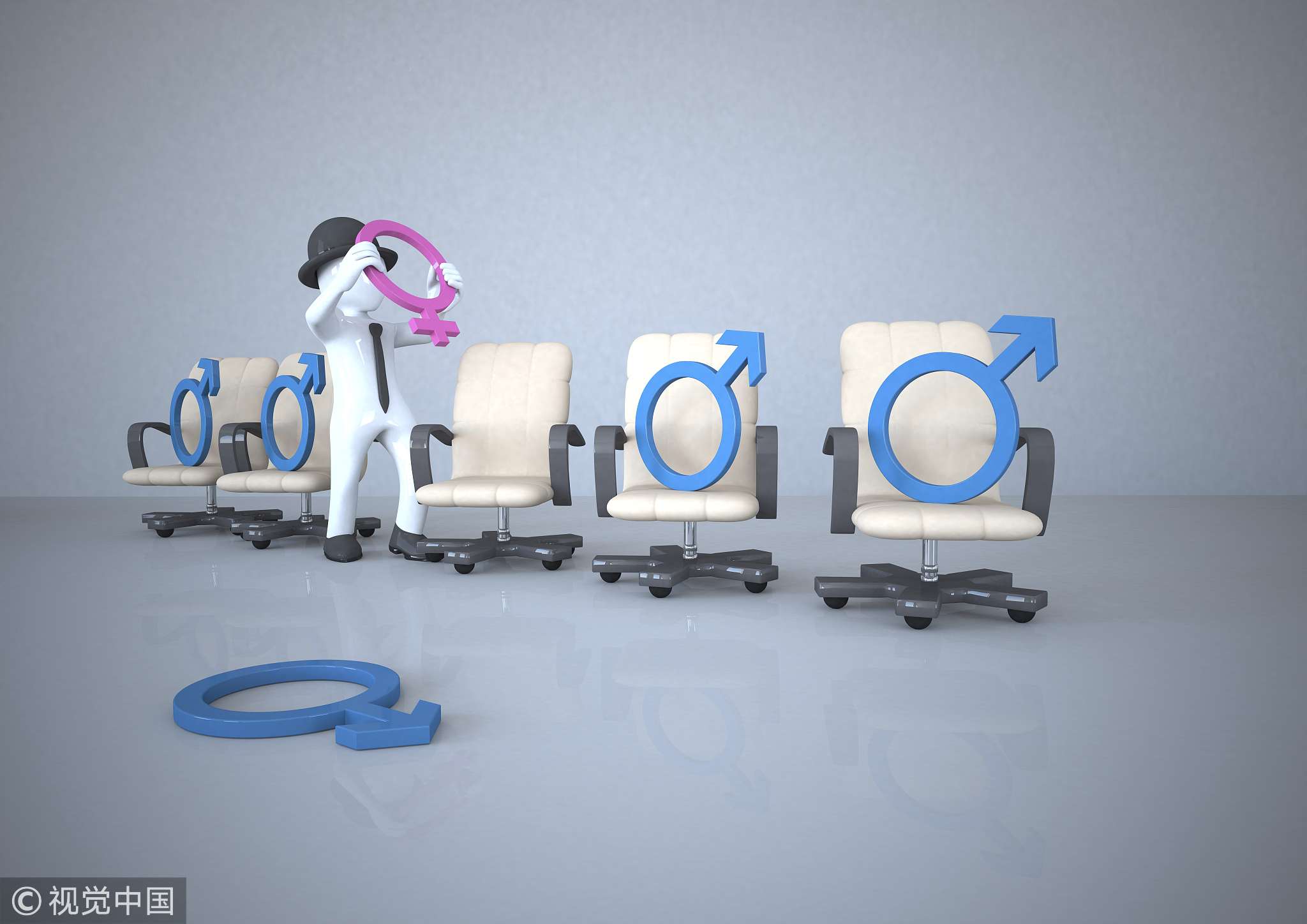
VCG photo
VCG photo
"Rationality" is a male stereotype globally, however, men are tired of extreme moral and gender attributions. "Men also have a sensitive side," Li Yinuo said, "especially in Chinese culture, men don't have a chance to honestly say how they feel. And that is also quite sad."
Young Chinese writer Jiang Fangzhou said that family is the big issue behind gender equality issues. "Many people in their 40s and 50s are fond of sometimes using gender as an example. They find it amusing, which, in essence, is exaggerated by their sense of humor."
What progress can be made in gender equality?
According to the above-mentioned report, there are six actions that companies need to take to change the situation.
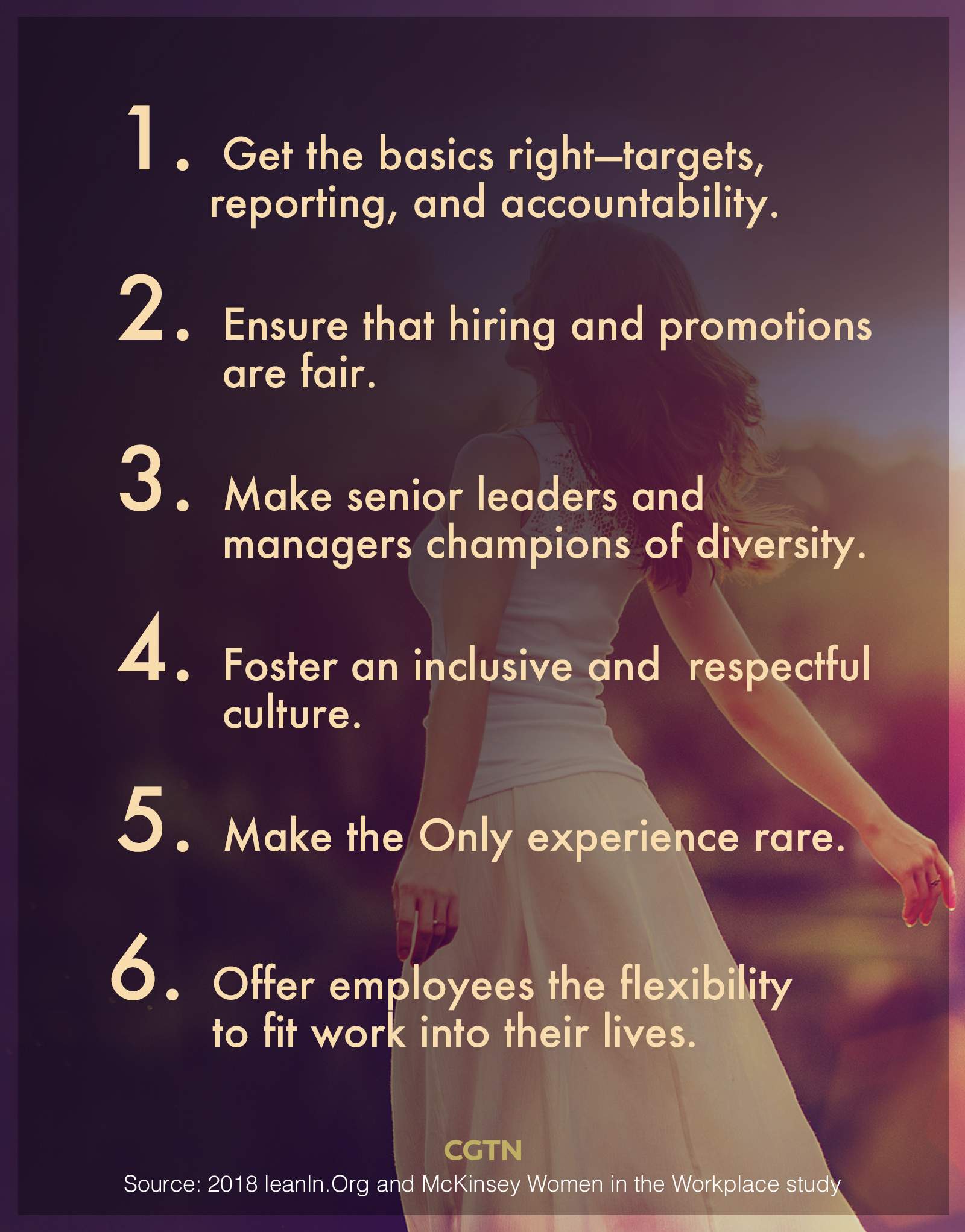
Six actions of making progress on gender equality /CGTN photo
Six actions of making progress on gender equality /CGTN photo
Jiang Fangzhou thinks that people who don't believe themselves to be sexist should be more open and vocal about it. "I think it's the best way to let the people change their stereotypes. Keeping silent and regarding society as a great scourge is not helping, they should face reality and try to change it."
Everybody wants to help those who are weak, but using gender as a defining principle should be abandoned. "If we take physical strength as a standard, females truly do not have the advantages, compared with men. But that doesn't mean men are always strong. We still need to protect people who are really weak, but not use gender as a tag," Lan said.

SITEMAP
Copyright © 2018 CGTN. Beijing ICP prepared NO.16065310-3
Copyright © 2018 CGTN. Beijing ICP prepared NO.16065310-3